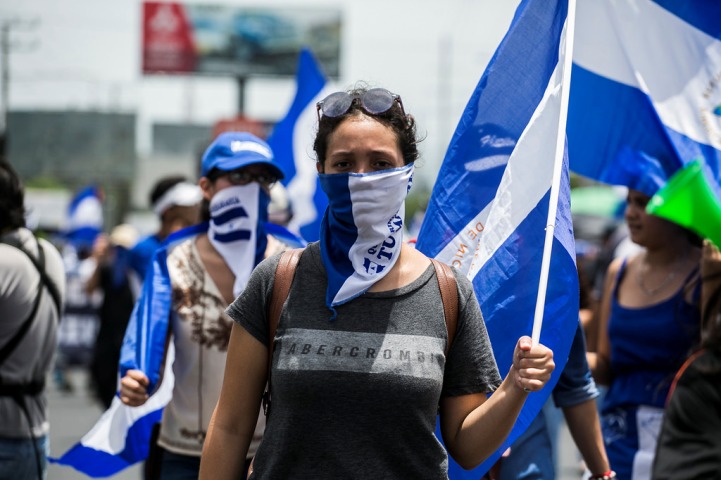UN Experts Urge Global Action to Hold Nicaragua Accountable for Crimes Against Humanity
“For decades, Nicaragua championed Central America as a region of peace, freedom, democracy, and development,” Simon said.

- Country:
- Nicaragua
The United Nations Group of Human Rights Experts on Nicaragua has issued a powerful appeal to the international community, urging it to take concrete steps to hold President Daniel Ortega's government accountable for systematic human rights abuses and international crimes. Presenting its findings to the UN General Assembly for the first time, the Group outlined a grim portrait of a country that once advocated for peace and democracy in Central America but now stands accused of dismantling the rule of law and persecuting its own people.
A State Policy of Repression and Fear
According to Jan-Michael Simon, Chair of the Group, Nicaragua's transformation is tragic and alarming. "For decades, Nicaragua championed Central America as a region of peace, freedom, democracy, and development," Simon said. "It is tragic that it now appears before the General Assembly as a State accused of dismantling the rule of law and democratic institutions."
The Group's findings, drawn from over 1,900 interviews and 9,300 official documents, reveal a deliberate State policy aimed at consolidating absolute power by silencing dissent through violence, intimidation, and systematic erosion of rights. These acts include arbitrary arrests, torture, and enforced disappearances—some of which amount to crimes against humanity under international law.
Enforced Disappearances: A Tool of Terror
One of the most chilling findings concerns the growing use of enforced disappearances, which the UN Working Group on Enforced Disappearances recently condemned. Group member Reed Brody described the practice as an act of calculated cruelty: "The Government's increasing use of enforced disappearance reflects a cruelty not only to the disappeared persons, but to their relatives who live in anguish and uncertainty."
Brody added that Nicaragua's legal system has become "predatory," forcing families into peril simply for seeking information about their loved ones. This, he said, reflects a broader machinery of repression that punishes grief and criminalizes compassion.
Repression Beyond Borders
The Ortega-Murillo administration has extended its campaign of repression far beyond its borders. Thousands of Nicaraguan exiles have been stripped of their nationality and citizenship, their properties seized, and their identities erased. Many have reported being harassed and monitored abroad. The killing of retired army major Roberto Samcam, a prominent government critic, in Costa Rica in June 2025 underscores the peril faced by dissidents even in exile.
"Exiles who oppose Daniel Ortega and Rosario Murillo live in constant fear," said Brody. "The Government has built a machinery of persecution that follows its citizens abroad, denying them documents, intimidating their relatives, and abusing international law enforcement mechanisms."
Ariela Peralta, another member of the Expert Group, noted that deprivation of nationality has become a weapon to obliterate dissent. "It destroys lives in practical, devastating ways—separating families, blocking access to education or work, and cutting people off from their homeland," she said.
Isolation and Impunity
The Experts highlighted Nicaragua's unprecedented withdrawal from five key UN agencies and even the Human Rights Council—a move seen as an attempt to evade international scrutiny. "The Government's isolation from the multilateral system is not an affirmation of sovereignty, but a quest for impunity," Simon emphasized.
This withdrawal, experts say, underscores the regime's intent to shield itself from accountability while deepening the suffering of its citizens. The Group warned that such disengagement from international mechanisms sets a dangerous precedent for global human rights governance.
Call for International Accountability
The Group of Experts called upon UN Member States to move beyond condemnation and take decisive measures. These include initiating legal proceedings, imposing targeted sanctions, and strengthening asylum protections for exiled Nicaraguans. The Experts also urged governments to pursue accountability through the International Court of Justice for violations of the 1961 Convention on the Reduction of Statelessness.
"The international community must not simply bear witness," said Peralta. "It must act—to ensure justice for the victims and to prevent further crimes."
Despite the bleakness of the situation, the Experts emphasized that hope endures. "The courage of victims and the persistence of those who document their suffering show that change remains possible," Peralta concluded.
ALSO READ
-
UN Human Rights Chief Condemns US Drug Trafficking Strikes
-
UN Expert Urges Stronger Human Rights Focus in Renewed CAR Peacekeeping Mandate
-
Deadliest Police Raid in Brazil Raises Human Rights Concerns
-
Australia's Controversial Nauru Deportation Deal: Human Rights Under Scrutiny
-
UN Investigator Challenges World Over US Sanctions on Human Rights Report









